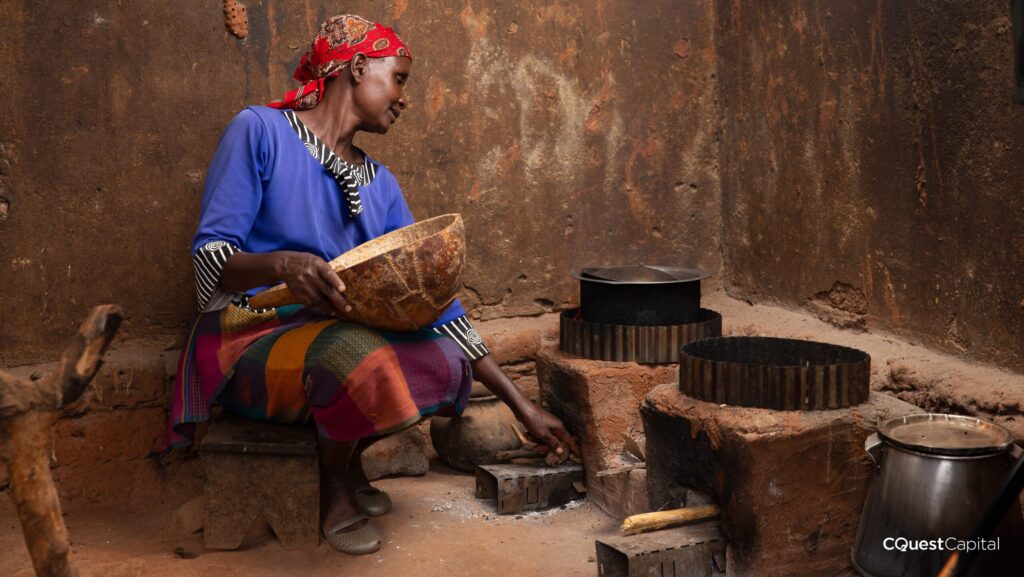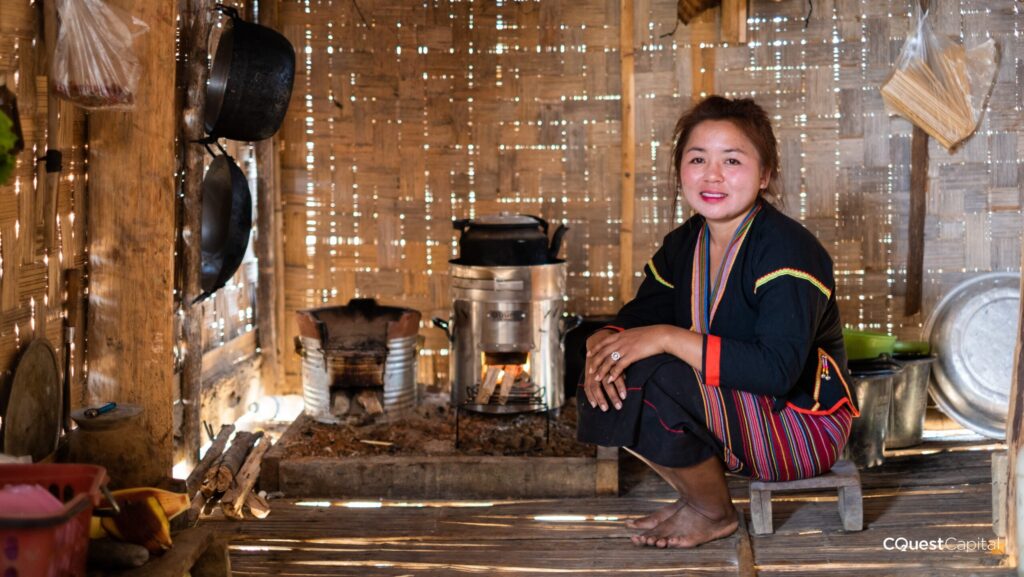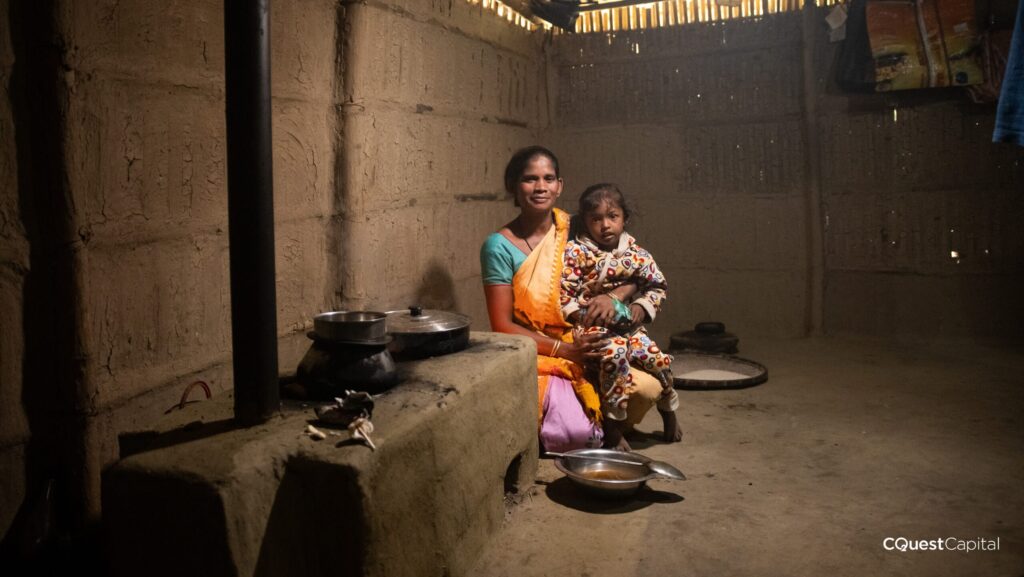C-Quest Capital: New CEO to Focus on Carbon Reduction, Innovation, and Impact
Founded in 2008, C-Quest Capital (C-Quest) develops and implements clean energy projects that significantly reduce global carbon emissions. With operations in 21 countries, C-Quest’s focus includes cleaner cooking, efficient lighting, methane avoidance, and technology development.
CCA spoke with C-Quest’s new CEO Jules Kortenhorst about what’s in store for the organization and how the former Rocky Mountain Institute CEO and member of the Dutch parliament envisions the future of carbon markets for clean cooking.
This interview is part of a series of conversations CCA is having with business leaders across the clean cooking sector.
Clean Cooking Alliance (CCA): C-Quest has been a longtime leader in developing carbon projects for clean cooking. What should we expect from C-Quest moving forward?
Jules Kortenhorst (Kortenhorst): C-Quest’s mission will continue to focus on serving the most vulnerable people in the world with clean cooking, clean energy, and nature-based solutions that improve climate resilience. That mission won’t change.
Millions of households have a better life as a result of what C-Quest has been able to achieve. Over the past decade the C-Quest team has become a major player in the global carbon market. C-Quest continues to be well-funded, and I’m excited about what is ahead.
I plan to ensure C-Quest continues to scale its impact globally through the carbon projects it provides, delivering clean cooking, nature-based, and clean energy solutions to millions more who need them.
CCA: What do you see as some of C-Quest’s immediate priorities?
Kortenhorst: It’s clear the voluntary carbon markets are a crucial mechanism for financing the rollout of clean cooking solutions to the 2.3 billion people that still need them. In the short-term, one of our top priorities will be working to enhance the quality, integrity, and transparency of carbon markets, including our own work and processes.
We are already investing significant time and resources into strengthening our internal systems and capabilities, while building the mechanisms that enable us to clearly explain the integrity of the carbon product we bring to the market, whether it’s from cookstoves or from nature-based solutions.
C-Quest is also working closely with CCA, carbon registries, standard bodies, and others to strengthen integrity in our sector, including efforts to develop new methodologies and Principles for Responsible Carbon Finance for Clean Cooking. Programs like these are critical to ensuring people have confidence in our methodologies and in the measurement, reporting, and validation of those methodologies to deliver the impacts we’ve promised.
CCA: With the importance of carbon markets for solving the cooking crisis, are there related issues or opportunities that you’re working on?
Kortenhorst: I want to re-iterate the importance of the new methodologies under development through the Clean Cooking and Climate Consortium. Led by CCA, this work is part of a broad consultation process that C-Quest is part of, and we are already working with the carbon registries to encourage them to adopt the new methodologies when released.
A related opportunity is around establishing accurate fNRB (fraction of Non-Renewable Biomass) values. Our experts are working closely with the United Nations Framework Convention on Climate Change, host governments across the Global South, and others to determine appropriate values. The markets need a decision to be made by the end of this year at COP29 in Baku.
One additional topic is the need for greater transparency. I think the sector will start moving to a world where individual projects will not just post their information on the carbon registry but also in the public domain more extensively. That includes performance criteria and results of their projects to enable buyers of cookstove credits to better assess climate impacts, as well as all the other Sustainable Development Goal (SDG) impacts that clean cooking delivers. Related, digitally metered solutions are, of course, another significant enabler of that integrity and transparency. Current costs to equip every stove with a metered solution are prohibitive, but what can we do to sample and to measure digitally what the usage is and what the climate benefit is? C-Quest is already piloting these technologies, and we look forward to being deeply engaged in that innovation across the sector.
CCA: What are some of C-Quest’s longer-term goals?
Kortenhorst: I think we will continue to look for areas to scale. We have already reached millions of households across Africa and Asia. But there are many, many more millions of households that are still searching for clean cooking solutions. So how do we roll out our solutions to more places in the world and, at the same time, how do we continue the journey to deliver better products?
The large majority of the cookstoves we’ve rolled out are more efficient biomass stoves, which are relatively simple to use, people like them, and they’re easy to maintain.
However, as we explore urban and peri-urban markets, there’s an opportunity for us to think more about other products further up the development curve, such as liquified petroleum gas and electric induction cooking. We are piloting in some of those areas already and have not yet made final strategic decisions where the emphasis of our strategy will lie. But I envision that we will continue to develop our core products and move into further developed solutions in the near future.
CCA: In your previous roles, you’ve presided over significant periods of growth and innovation. Do you have a similar vision in mind for C-Quest?
Kortenhorst: Again, our core mission isn’t going to change. But there are a number of areas for us to build on that mission.
As I mentioned, an expansion into more urban and peri-urban areas makes sense, both from a business perspective and to reach people where they are with products they want and will use.
Another important part of the C-Quest model has been, and will continue to be, a focus on our customers. Once we have deployed our cookstoves, we invest in what we call Stove Champions, mostly women, who visit homes and communities on a regular basis, supporting the use and service of the stoves.
It’s somewhat like when people talk in the West about “the last mile.” Only, I think we should think about it as “the last meter” of the relationship between households, our clients, and our Stove Champions who can serve as a sales and distribution channel to deliver additional energy solutions to these villages.
We will also be looking at establishing new partnerships and expanding existing ones. I have learned that the climate change problem is too big for any one of us to solve. It’s similar with clean cooking. You will see C-Quest with an arms wide open approach to partnership, to collaborating, to learning with and from others.
What I do – I build structures, I collaborate, I build processes and systems. In every organization there are development phases, taking that organization from A to B. We’re now in Phase B and I’m excited to be part of it.
CCA: You’ve had a diverse career, from serving as a member of the Dutch parliament to heading the Rocky Mountain Institute for a decade. Why clean cooking?
Kortenhorst: My previous role before C-Quest was at Vision Ridge Partners, a sustainable real assets investor that started supporting C-Quest last year, so I was already closely engaged on clean cooking.
It’s so much fun to be at an organization that is doing something good, where impact is the driving part of your mission. I feel very privileged to take this job and to continue working on climate change, which has been my focus for the last 16 or 17 years. Clean cooking also delivers a range of co-benefits beyond climate, which is what really differentiates clean cooking carbon credits from many others. We’re not just addressing the climate issue but also empowering women, improving health outcomes, and improving food security. There’s a whole comprehensive web of SDG benefits that comes with the clean cooking solution that we all deploy, and that needs to be made more clear.



